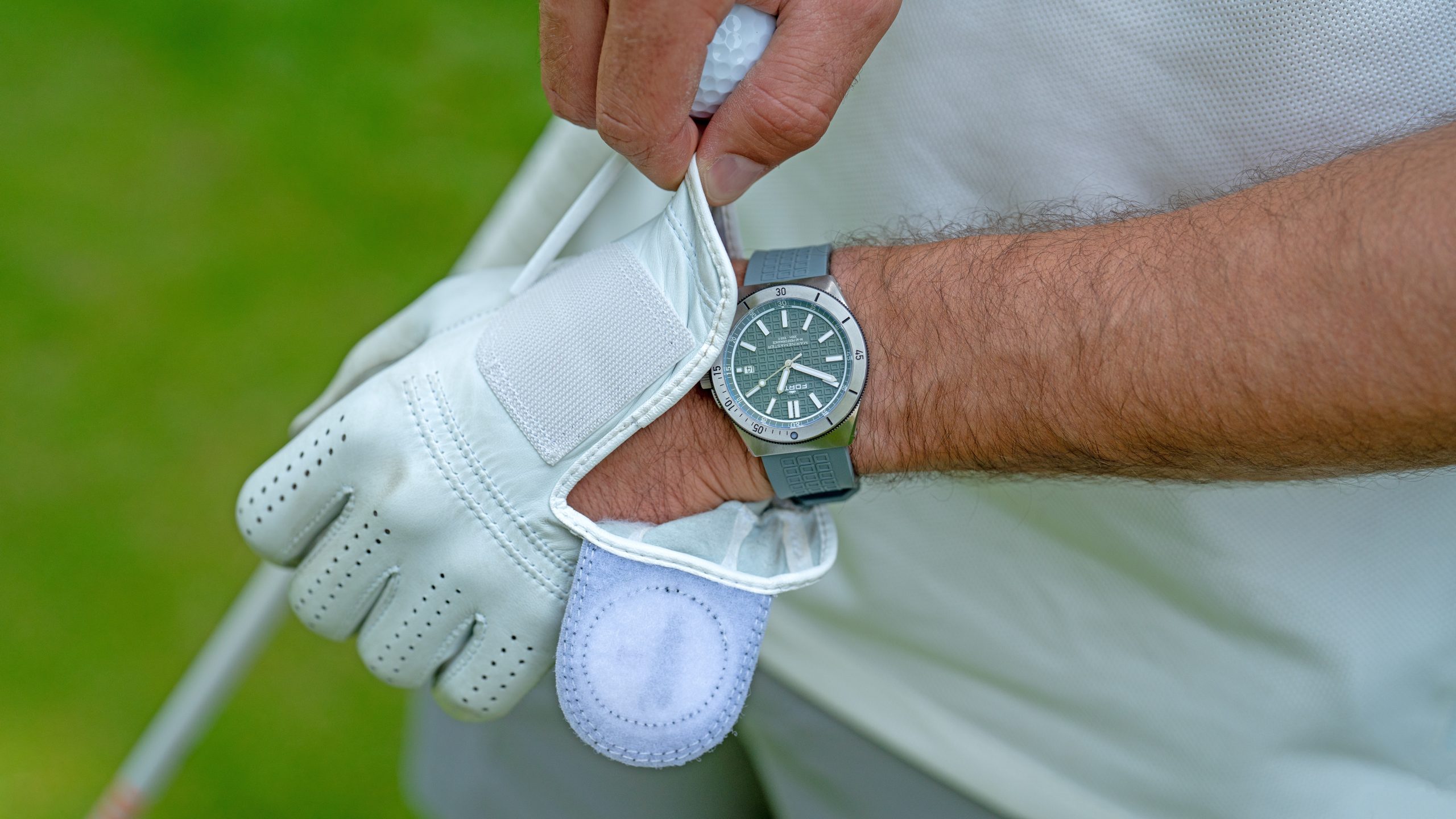Leather vs. Synthetic Golf Gloves: Which is Right for You?

Leather Golf Gloves: Timeless Elegance and Reliable Performance
Features: Leather gloves, harkening back to golf’s traditions, are crafted from genuine leather, offering a natural and comfortable fit that adapts to your hand over time. The texture of leather provides an exceptional grip on the club.
Advantages:
Grip and Feel: Leather gloves are revered for their superior grip, especially in dry conditions. The tactile feedback they provide allows golfers to have a precise sense of their club’s position during the swing.
Durability: These gloves are built to last, maintaining their shape and performance through countless rounds. The investment in a quality leather glove can pay off over time.
Classic Aesthetics: Leather gloves exude a sense of sophistication and elegance, appealing to golfers who appreciate traditional style.
Considerations:
Wet Weather Performance: Leather gloves can lose their grip when wet, potentially affecting your performance in rainy conditions.
Break-In Period: New leather gloves might require some time to break in before achieving maximum comfort and fit.
Synthetic Golf Gloves: Versatility and Performance in All Conditions
Features: Synthetic gloves are constructed from materials like microfiber and synthetic leather, often incorporating technologies for moisture-wicking and breathability.
Advantages:
Consistent Performance: Synthetic gloves offer reliable grip in various weather conditions, including wet ones. They ensure a steady hold on the club even when the weather turns unfavorable.
Quick Drying: These gloves excel in drying quickly, making them ideal for humid climates or rounds played in the rain.
Low Maintenance: Synthetic gloves are generally easier to clean and maintain compared to leather gloves.
Considerations:
Durability: While they have improved in this aspect, synthetic gloves may not match the longevity of premium leather gloves.
Texture: Some golfers prefer the natural texture and feel of leather gloves over the synthetic alternatives.
Choosing the Right Glove for You
Selecting between leather and synthetic golf gloves boils down to your personal preferences, playing environment, and desired performance. If you value tradition, durability, and often play in dry conditions, a leather glove might be your best bet. On the other hand, if you seek a versatile glove that performs consistently in various weather conditions and requires less upkeep, a synthetic glove could be the ideal choice.
Conclusion
In the realm of golf gloves, the choice between leather and synthetic is a pivotal decision that can impact your game. Both styles offer distinct advantages that cater to different golfing needs and preferences. Whether you opt for the timeless elegance of leather or the reliable performance of synthetic, your chosen glove should empower you with the confidence to grip your club firmly and execute those crucial shots with finesse. So, take into account your playing style, local climate, and personal taste, and make an informed decision that will enhance your golfing experience on every swing.
